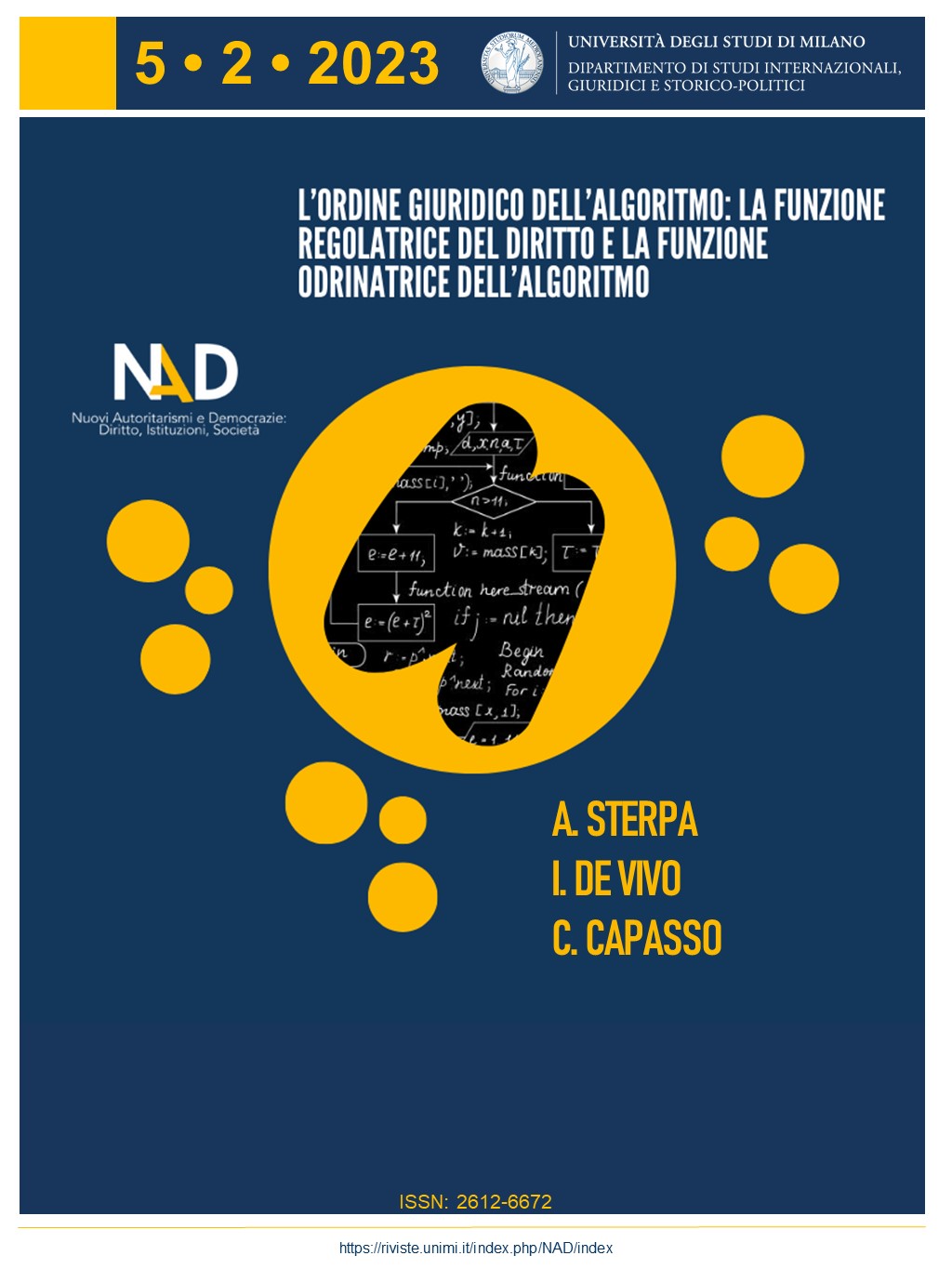L’ordine giuridico dell’algoritmo: la funzione regolatrice del diritto e la funzione ordinatrice dell’algoritmo
DOI:
https://doi.org/10.54103/2612-6672/22174Parole chiave:
Legal rules, algorithmic rules, human biases, machine biases, european risk based approach, algorithmic sovereignty, human sovereigntyAbstract
Humans have historically developed tools, both tangible and intangible, to impose order, mitigate risks, and align actions with collective values. This article explores the parallel roles of legal norms and algorithms in establishing regularities that may be beneficial to human cognition, shielding it from boundless unpredictability. With an emphasis on the intertwining of rational and emotional facets of human cognition, we delve into the shared ordering functions of law and AI algorithms. The article highlights the challenges, biases, and dilemmas surrounding AI and its regulation. We conclude by advocating for a more structured political approach to AI governance, emphasizing the importance of delineating roles for AI to ensure certain domains remain exclusively within human purview.
Riferimenti bibliografici
de Vivo I. (2023). The “neo-intermediation” of large on-line platforms: Perspectives of analysis of the “state of health” of the digital information ecosystem, The European Journal of Communications Research ISSN: 1613-4087 https://doi.org/10.1515/commun-2022-0102 Journal article
de Vivo I. (2023). Towards an Algorithmic Public Opinion? In R. Andò (a cura di) Vol. OA “New Journalism(s) in Theory and Practices Learning from Digital Transformations”, pp. 63-93 Sapienza Università Editrice, ISBN9788893772808
de Vivo I. (2023) Il potere d’opinione delle piattaforme-online: quale ruolo del “regulatory turn” europeo nell’oligopolio informativo digitale? Pubblicazione degli atti del Convegno: “Democrazia tra crisi e nuove sfide” 5. Università di Messina, Dipartimento di Scienze politiche e giuridiche (SCIPOG). Messina University Press In corso di pubblicazione.
N. Irti, L’ordine giuridico del mercato, Laterza, 2009;
G. Maira, Il cervello è più grande del cielo, Solferino, 2019;
C. O’Neil,, Weapons of Math Destruction. How Big Data increases inequality and threatens democracy, Penguin Books, 2017;
J. Phillips, M. Przybocki, Four Principles of Explainable AI as Applied to Biometrics and Facial Forensic Algorithms, National Institute of Standards and Technology, 2020; P. Benanti, Oracoli. Tra algoretica e algocrazia, Luca Sossella editore, 2019.

Dowloads
Pubblicato
Come citare
Fascicolo
Sezione
Licenza
Copyright (c) 2023 Alessandro Sterpa, Isabella de Vivo, Claudia Capasso

Questo lavoro è fornito con la licenza Creative Commons Attribuzione - Non commerciale - Non opere derivate 4.0 Internazionale.









